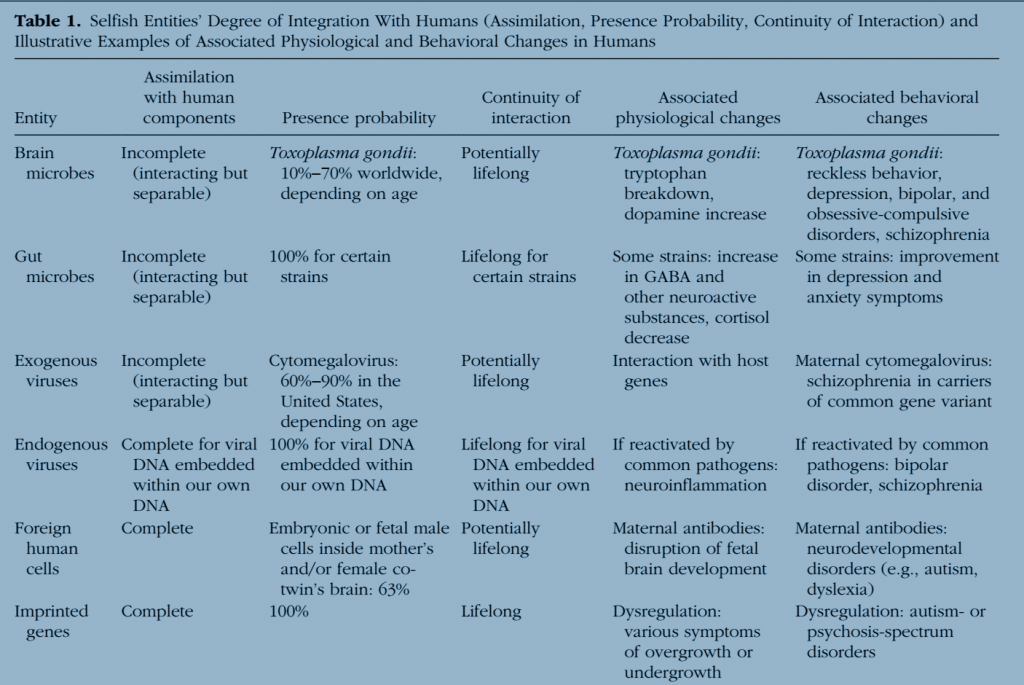
We Are Not Human Individuals
Unbeknownst to many people, our emotions, cognition, behavior, and mental health are influenced by a large number of entities that reside in our bodies while pursuing their own interests, which need not coincide with ours. Such selfish entities include microbes, viruses, foreign human cells, and imprinted genes regulated by viruslike elements. This article provides a broad overview, aimed at a wide readership, of the consequences of our coexistence with these entities. Its aim is to show that we are not unitary individuals in control of ourselves but rather “holobionts” or superorganisms—meant here as collections of human and nonhuman elements that are to varying degrees integrated and, in an incessant struggle, jointly define who we are.
That is the first paragraph of “Humans as Superorganisms: How Microbes, Viruses, Imprinted Genes, and Other Selfish Entities Shape Our Behavior” by Peter Kramer and Paola Bressan (Padua). The article is a useful summary of various findings about nonhuman biological entities that exist in humans and affect our thoughts and behavior. The following table, from the article, provides some examples:
There are lots of interesting nuggets in the article (e.g., a possible explanation for this), but what comes through is just how much nonhuman activity there is going on in us. The authors take the prevalence of the phenomenon to support their conclusion about our nature:
Whereas our cohabitation with one or another of them may not pose a strong challenge to the commonly shared assumption that humans are unitary individuals, the presence of a large number and wide variety of such entities—and the power they have on us—renders this assumption untenable. We are not organisms but superorganisms, and understanding our behavior ultimately requires an understanding of the network of selfish entities that inhabit our body and actively interact with it. It is time to change the very concept we have of ourselves and to realize that one human individual is neither just human nor just one individual.
Does the evidence warrant changing “the very concept we have of ourselves”? What would that mean?
On one view, we haven’t learned anything fundamentally different about humans—we’ve just filled in the details about what we’re made of and what kinds of things influence us (and as it turns out, more of those influences are inside the “skin bag” than we might have thought). On the other hand, these findings do seem to interfere with a fairly common view about human nature and prospects for rational agency that informs a lot of philosophy. Are these philosophically interesting findings? At the very least, that is a philosophically interesting question.
(via Nadira Faber, who posted about this article at Practical Ethics)
(image: Figure 1 from “Humans as Superorganisms” by Peter Kramer & Paola Bressan, with technical assistance by Nino Trainito)

Comentarios
Publicar un comentario